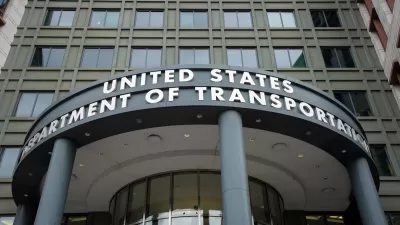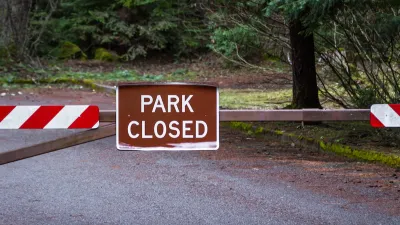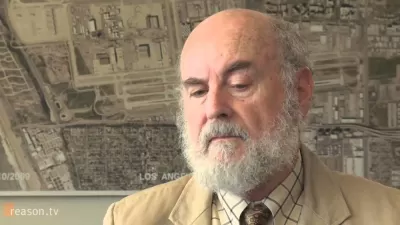Distinguished Professor of Urban Planning Donald Shoup has caused a revolution in the field of parking economics over his four decades at UCLA.

In light of his upcoming retirement this summer, Shoup reflects on his career and reviews his main recommendations for cities in an original interview with The Planning Report.
The conversation coincides with the American Planning Association selecting Shoup as the recipient of its 2015 National Planning Pioneer Award in honor of his accomplishments.
Here, Shoup runs through the top three policy changes necessary to improve parking across municipalities, from his game-changing 2005 book The High Cost of Free Parking: "charge the right price for on-street parking," "make right-priced curb parking popular by spending the meter revenue in the metered neighborhoods," and "remove minimum parking requirements."
Considering his impact on the field as a whole, Shoup notes:
"A lot of young people have been emboldened by what I’m saying. I’m old, senior, and part of the establishment—my book was published by the American Planning Association—yet my stance is a complete indictment of how we plan cities now. My book says that almost everything most cities do is wrong when it comes to parking."
FULL STORY: Lessons from LA's 'Parking Guru' Spread Around the World

Manufactured Crisis: Losing the Nation’s Largest Source of Unsubsidized Affordable Housing
Manufactured housing communities have long been an affordable housing option for millions of people living in the U.S., but that affordability is disappearing rapidly. How did we get here?

Americans May Be Stuck — But Why?
Americans are moving a lot less than they once did, and that is a problem. While Yoni Applebaum, in his highly-publicized article Stuck, gets the reasons badly wrong, it's still important to ask: why are we moving so much less than before?

Using Old Oil and Gas Wells for Green Energy Storage
Penn State researchers have found that repurposing abandoned oil and gas wells for geothermal-assisted compressed-air energy storage can boost efficiency, reduce environmental risks, and support clean energy and job transitions.

Updating LA’s Tree Rules Could Bring More Shade to Underserved Neighborhoods
A new USC study finds that relaxing Los Angeles’ outdated tree planting guidelines could significantly expand urban tree canopy and reduce shade disparities in lower-income neighborhoods, though infrastructure investments are also needed.

California's Canal Solar Projects Aim to Conserve Resources and Expand Clean Energy
California’s Project Nexus has begun generating electricity from solar panels installed over irrigation canals, with researchers and state agencies exploring statewide expansion to conserve water and boost clean energy production.

HHS Staff Cuts Gut Energy Assistance Program
The full staff of a federal program that distributes heating and cooling assistance for low-income families was laid off, jeopardizing the program’s operations.
Urban Design for Planners 1: Software Tools
This six-course series explores essential urban design concepts using open source software and equips planners with the tools they need to participate fully in the urban design process.
Planning for Universal Design
Learn the tools for implementing Universal Design in planning regulations.
Heyer Gruel & Associates PA
City of Moreno Valley
Institute for Housing and Urban Development Studies (IHS)
City of Grandview
Harvard GSD Executive Education
Salt Lake City
NYU Wagner Graduate School of Public Service
City of Cambridge, Maryland





























